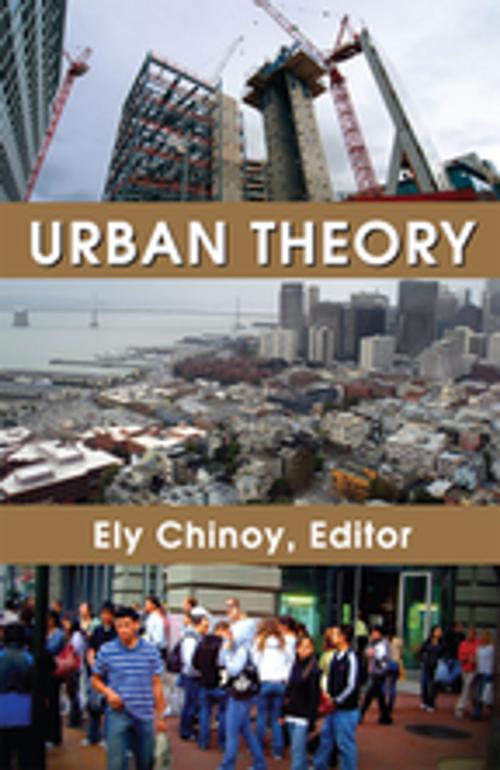| Author: | Ely Chinoy | ISBN: | 9781351300506 |
| Publisher: | Taylor and Francis | Publication: | September 29, 2017 |
| Imprint: | Routledge | Language: | English |
| Author: | Ely Chinoy |
| ISBN: | 9781351300506 |
| Publisher: | Taylor and Francis |
| Publication: | September 29, 2017 |
| Imprint: | Routledge |
| Language: | English |
What is the future of the American city? What are the relevant contexts for the analysis of urban problems? Should attention be focused on the metropolitan area, the region, or the megalopolis? Does the changing shape and structure of urban America require new ways of thinking about the urban community? How do national trends and policies affect the future of city life? Until now few sociologists have tried to see what urban America may become. This failure limits their ability to serve the function they claim for themselves, asserts Ely Chinoy, enabling men and women to help shape their own future.Urban Theory examines trends, including social, cultural, and national variables that could affect them; offers explanations of urban problems; and presents a careful review of solutions that have been offered - proposals of planners, politicians, cynics, and even visionaries for remaking our cities and for controlling and directing growth or deterioration. It is a valuable assessment of the state of thinking about urban life during the post-World War II period, with interesting projections of trends and analyses. It includes a comprehensive discussion of many of the more academic questions dealt with in courses in urban sociology and urban planning, as well as a treatment of problems within a larger and more meaningful context.Chinoy states that unless people anticipate alternatives open to them, they will remain captive to forces that they do not understand or have no control over. By examining what the future may hold, we can more readily understand the present, cope with its problems, and deliberately contribute to the shape of the future. This perspective is as appropriate today as it was when the book was originally published in 1973. Included here are pieces by York Willbern, Catherine Bauer Wurster, John Friedman, John Miller, Jean Gottman, Paul N. Ylvisaker, Nathan Glazer, Morton Grodzins, and Russell Baker. This material will continue to be of interest in all sociology, political science, and urban studies courses that deal with crucial problems of the city, as well as to all planners and urban specialists.
What is the future of the American city? What are the relevant contexts for the analysis of urban problems? Should attention be focused on the metropolitan area, the region, or the megalopolis? Does the changing shape and structure of urban America require new ways of thinking about the urban community? How do national trends and policies affect the future of city life? Until now few sociologists have tried to see what urban America may become. This failure limits their ability to serve the function they claim for themselves, asserts Ely Chinoy, enabling men and women to help shape their own future.Urban Theory examines trends, including social, cultural, and national variables that could affect them; offers explanations of urban problems; and presents a careful review of solutions that have been offered - proposals of planners, politicians, cynics, and even visionaries for remaking our cities and for controlling and directing growth or deterioration. It is a valuable assessment of the state of thinking about urban life during the post-World War II period, with interesting projections of trends and analyses. It includes a comprehensive discussion of many of the more academic questions dealt with in courses in urban sociology and urban planning, as well as a treatment of problems within a larger and more meaningful context.Chinoy states that unless people anticipate alternatives open to them, they will remain captive to forces that they do not understand or have no control over. By examining what the future may hold, we can more readily understand the present, cope with its problems, and deliberately contribute to the shape of the future. This perspective is as appropriate today as it was when the book was originally published in 1973. Included here are pieces by York Willbern, Catherine Bauer Wurster, John Friedman, John Miller, Jean Gottman, Paul N. Ylvisaker, Nathan Glazer, Morton Grodzins, and Russell Baker. This material will continue to be of interest in all sociology, political science, and urban studies courses that deal with crucial problems of the city, as well as to all planners and urban specialists.















